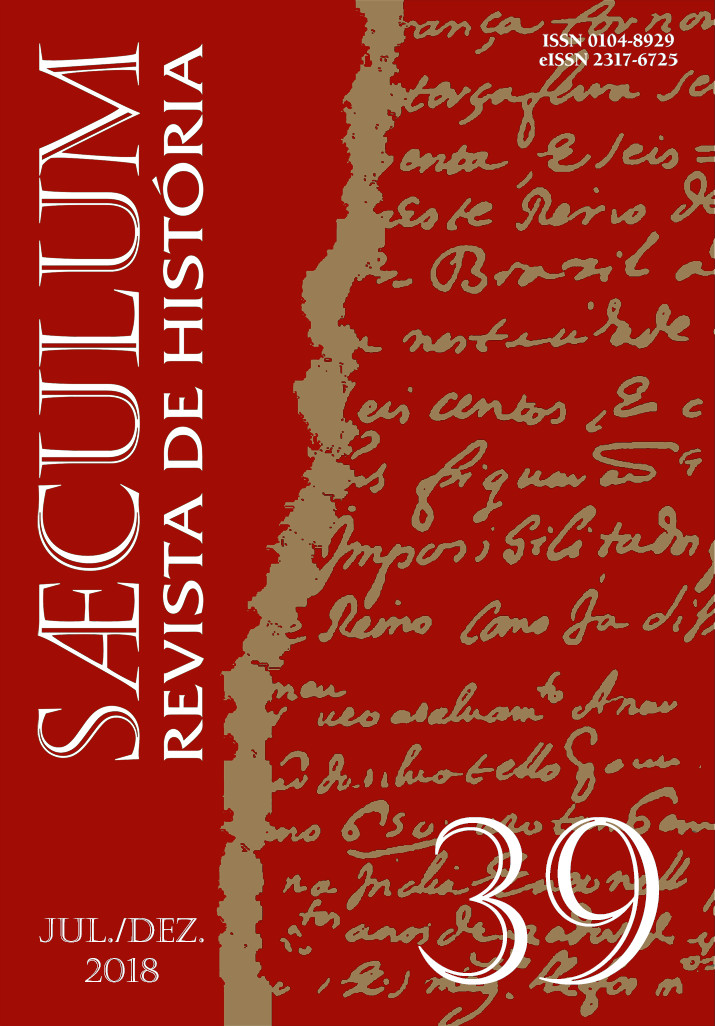As pretas minas do Rosário nas margens da liberdade: mobilidade social e heranças da diáspora. (São João del-Rei, séculos XVIII e XIX)
DOI:
https://doi.org/10.22478/ufpb.2317-6725.2018v39n39.31915Keywords:
The Rosary Brotherhood, Wills, Black minesAbstract
This article aims to analyze the social mobility processes of the black sisters freed Costa Mine and its investments in material and symbolic goods of the Rosary brotherhood of São João del Rei, between the second half of the eighteenth century to the middle of the nineteenth century. Our complaint seeks to demonstrate that, despite the departure from the formal activities of the association, these women built insertion strategies and spaces of important power within the fellowship. However, the scope of this role in the high echelons of the Brotherhood refers not only to situational agency in the Atlantic Diaspora, but the "heritage and memories" re-signified the experience of slave society in the New World. To this end, we will the blinders sisters and documentation of the brotherhoods were used, such as appointments books and enrollment seats.Downloads
Download data is not yet available.
Downloads
Published
2018-12-17
How to Cite
DELFINO, L. L. As pretas minas do Rosário nas margens da liberdade: mobilidade social e heranças da diáspora. (São João del-Rei, séculos XVIII e XIX). Saeculum, [S. l.], n. 39 (jul./dez.), p. 371–382, 2018. DOI: 10.22478/ufpb.2317-6725.2018v39n39.31915. Disponível em: https://periodicos.ufpb.br/index.php/srh/article/view/31915. Acesso em: 15 jan. 2025.
Issue
Section
Dossiê












